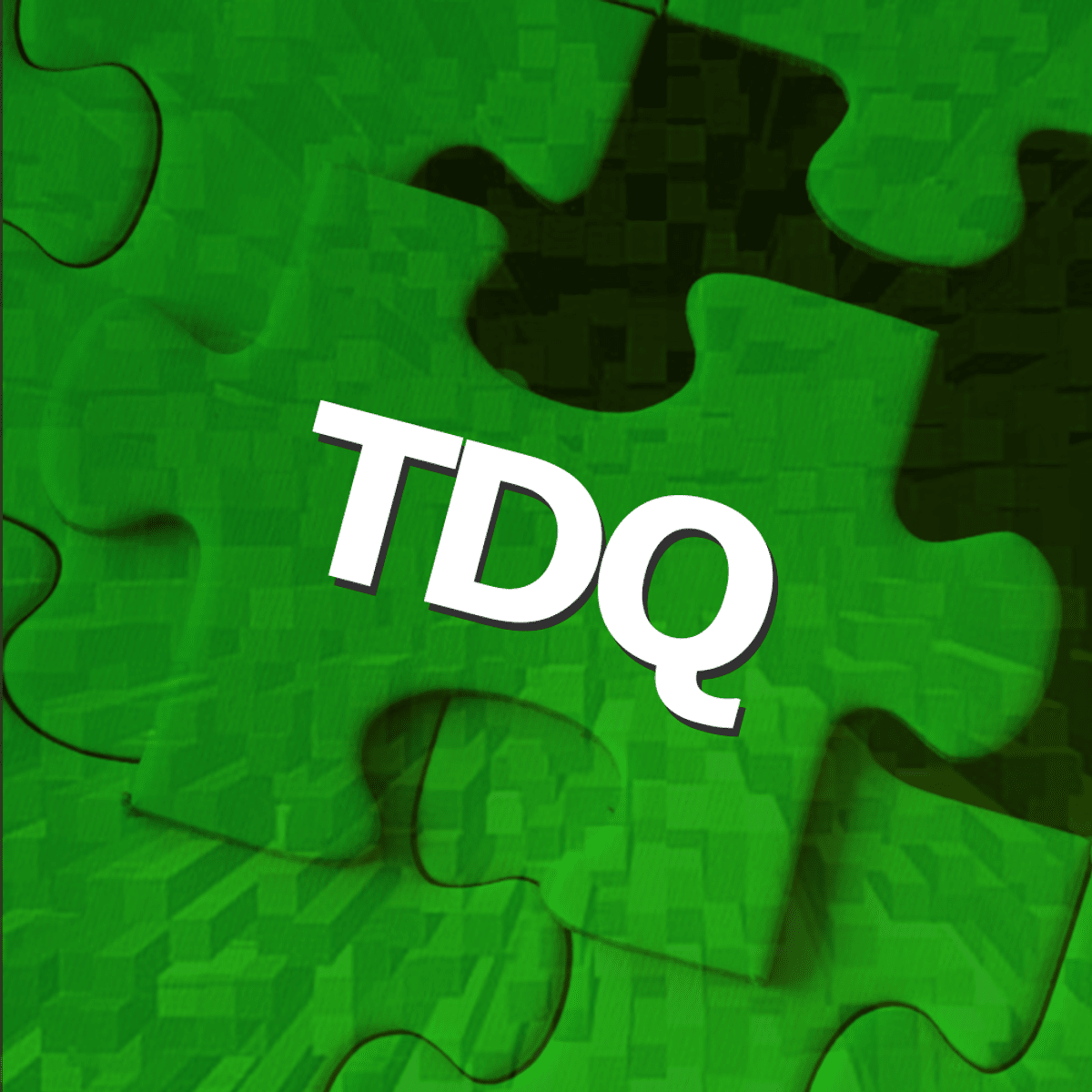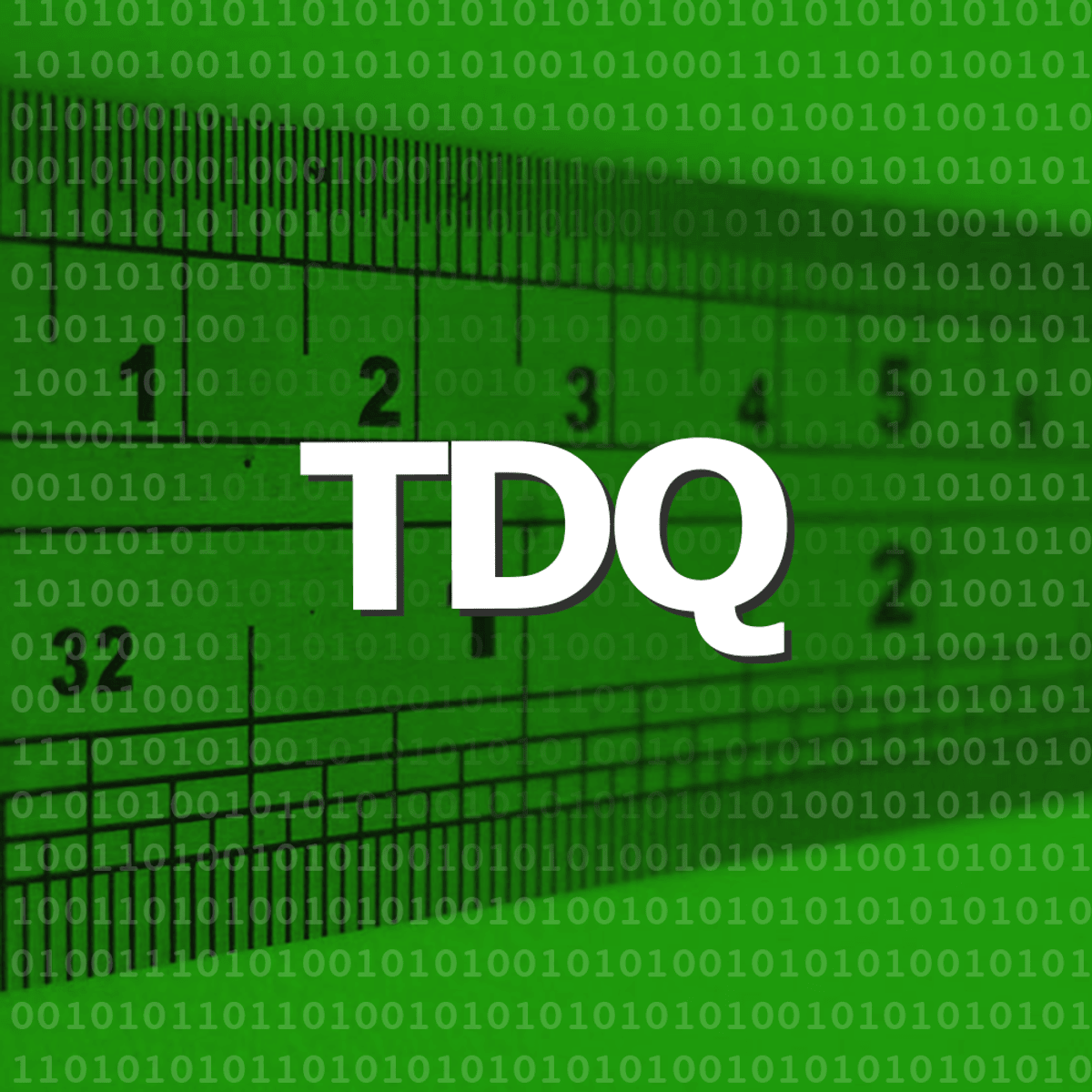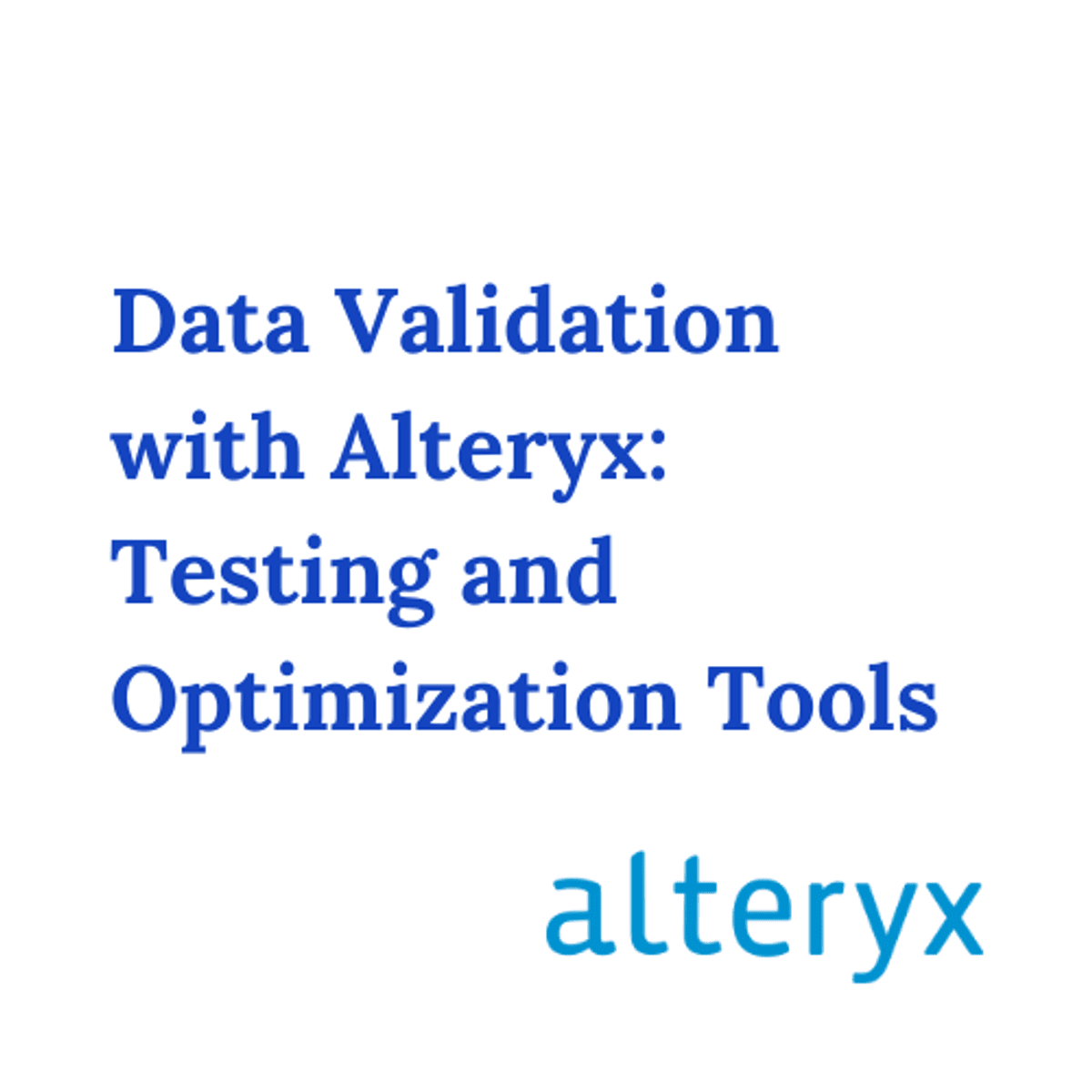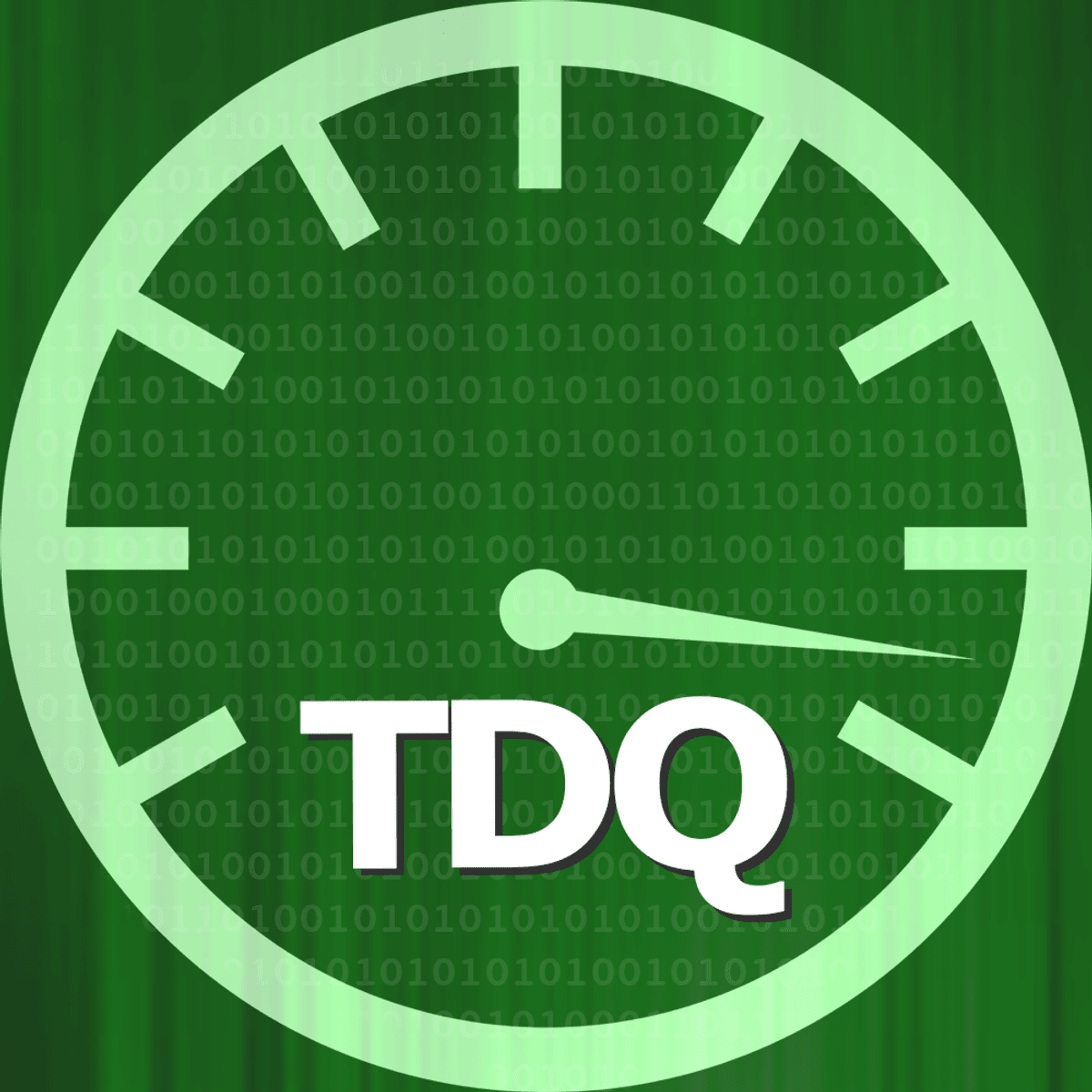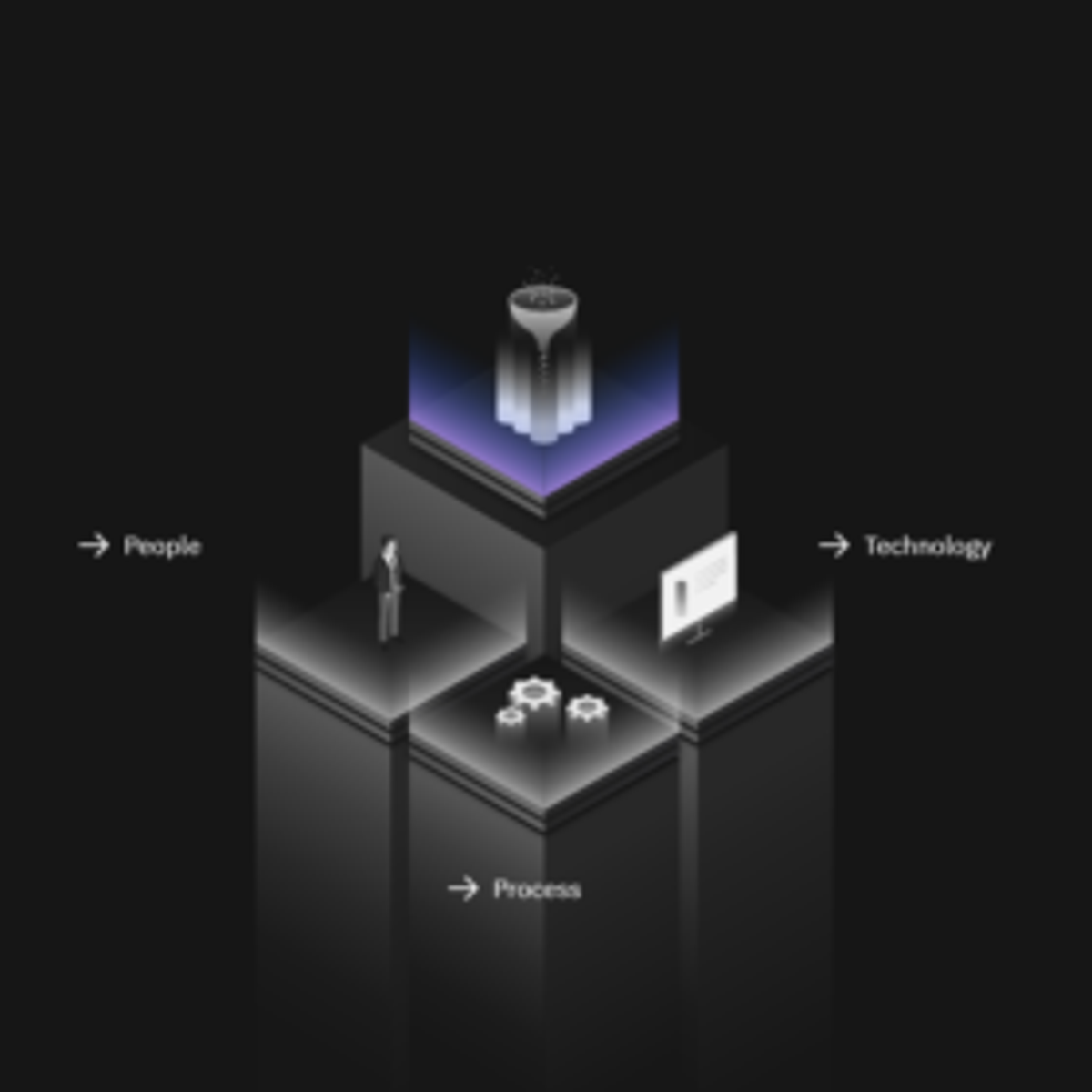Data Quality Manager
Data Quality Manager: A Comprehensive Career Guide
A Data Quality Manager (DQM) plays a crucial role in today's data-driven world. They are the guardians of an organization's data assets, ensuring that information is accurate, consistent, complete, and reliable. Think of them as the quality control experts for the vast streams of data flowing through a company, ensuring it meets high standards before being used for decision-making, analytics, or operations.
Working as a Data Quality Manager can be deeply rewarding. You'll be at the intersection of business processes and technology, solving complex puzzles to improve how data is handled. This role offers the chance to make a tangible impact, as high-quality data directly influences business strategy, operational efficiency, and compliance with regulations. It's a field that demands critical thinking, collaboration, and a keen eye for detail.
Introduction to Data Quality Management
Understanding the role of a Data Quality Manager begins with recognizing the immense value and potential pitfalls of data within any organization. This section defines the role, explores its evolution, and highlights its importance across various industries.
What is a Data Quality Manager?
A Data Quality Manager is fundamentally responsible for establishing and maintaining the standards for data across an organization. They oversee the entire lifecycle of data quality, from acquisition and integration to cleansing and maintenance. Their goal is to ensure data meets predefined quality criteria, making it fit for purpose, whether that's for operational use, analytical insights, or strategic planning.
This involves assessing the current state of data health, identifying areas for improvement, and implementing solutions. DQMs often develop policies, procedures, and standards related to data handling. They act as stewards, ensuring that data is treated as a valuable asset and that its integrity is protected throughout its journey within the organization.
Their responsibilities often extend to training staff on data quality best practices and ensuring compliance with both internal policies and external regulations. They are key figures in fostering a culture where data quality is prioritized and understood across different departments.
These books offer foundational knowledge and practical guidance on the core concepts and practices of data quality.
The Growing Importance of Data Quality
The discipline of data quality management isn't new, but its significance has skyrocketed in recent years. Initially, data quality efforts might have been confined to specific projects or departments. However, the explosion of data volume, variety, and velocity (Big Data) has made comprehensive data quality a strategic imperative.
Poor data quality can lead to flawed business decisions, operational inefficiencies, missed opportunities, and reputational damage. Issues like duplicate customer records, inaccurate financial data, or incomplete product information can have significant financial consequences. As businesses rely more heavily on data for analytics, AI, and machine learning, the impact of poor data quality becomes magnified.
Furthermore, increasing regulatory scrutiny, such as GDPR and HIPAA, mandates higher standards for data accuracy, privacy, and security. Organizations are now legally obligated to manage data responsibly, making data quality management not just a best practice, but a necessity for compliance.
Understanding the broader context of data quality is crucial. These topics delve deeper into specific frameworks and assessment techniques.
Where Do Data Quality Managers Work?
Data Quality Managers are needed across a wide spectrum of industries because virtually every sector relies on data. Finance, healthcare, retail, telecommunications, manufacturing, and government are sectors where data quality is particularly critical due to regulatory requirements and the direct impact of data on customer experience and operations.
In financial services, accurate data is essential for risk management, fraud detection, and regulatory reporting like that required by the Sarbanes-Oxley Act (SOX). Healthcare organizations need high-quality data for patient care, clinical research, and compliance with regulations like HIPAA. Retailers rely on clean customer and product data for effective marketing, supply chain management, and e-commerce operations.
The rise of Artificial Intelligence (AI) and Machine Learning (ML) has further amplified the need for DQMs. AI/ML models are only as good as the data they are trained on. Biased, incomplete, or inaccurate data can lead to flawed models, skewed predictions, and potentially discriminatory outcomes. Data Quality Managers are essential in ensuring that the data fueling these advanced technologies is fit for purpose, robust, and ethically sound.
This course explores data quality specifically within the healthcare context, highlighting industry-specific challenges.
Core Responsibilities of a Data Quality Manager
The day-to-day work of a Data Quality Manager involves a blend of strategic planning, technical execution, and collaborative engagement. They are central figures in ensuring data usability and trustworthiness.
Implementing Data Governance
A significant part of a DQM's role involves establishing or supporting a Data Governance framework. This framework comprises the policies, standards, processes, and controls required to manage and use data assets effectively. The DQM works to define data ownership, stewardship responsibilities, and rules for data creation, modification, and usage.
Implementing data governance means translating high-level policies into actionable procedures. This could involve defining business rules for critical data elements, establishing data dictionaries or glossaries, and ensuring these standards are communicated and enforced across the organization. They often collaborate with IT, business units, and compliance teams to align the governance framework with organizational goals and regulatory requirements.
Success in this area requires strong organizational and communication skills, as well as the ability to influence change and foster a shared understanding of data responsibilities.
Defining and Measuring Quality
A core technical aspect of the role is defining what "good quality" means for different types of data within the organization. This involves establishing specific, measurable Data Quality Metrics. Common dimensions include accuracy (does the data reflect reality?), completeness (are all required data fields filled?), consistency (is the data uniform across different systems?), timeliness (is the data available when needed?), uniqueness (are there duplicate records?), and validity (does the data conform to defined formats and rules?).
Once metrics are defined, the DQM oversees the processes for measuring and monitoring them. This often involves using Data Profiling tools to analyze datasets, identify anomalies, and quantify the extent of quality issues. They develop dashboards and reports to track quality trends over time, providing visibility to stakeholders and highlighting areas needing attention.
Setting appropriate thresholds for these metrics and developing action plans when quality falls below acceptable levels are also key responsibilities.
These courses offer practical insights into measuring and assessing data quality using established frameworks and tools.
Collaboration and Communication
Data quality is rarely the responsibility of a single person or team; it's a shared responsibility across the organization. Data Quality Managers act as crucial connectors, collaborating extensively with various departments, including IT, data engineering, business intelligence, analytics teams, and individual business units.
They work with data producers (those who create or input data) to understand sources of errors and implement preventative measures. They collaborate with data consumers (analysts, data scientists, business users) to understand their quality requirements and the impact of poor data on their work. This often involves facilitating workshops, leading cross-functional teams, and translating technical issues into business impacts.
Effective communication is paramount. DQMs need to clearly articulate data quality issues, the rationale behind quality standards, and the benefits of improvement initiatives to both technical and non-technical audiences. They often champion the importance of data quality, fostering a culture of data awareness and accountability throughout the organization.
Ensuring Compliance and Performing Analysis
Ensuring adherence to data-related regulations is a critical function. DQMs must stay informed about requirements like the General Data Protection Regulation (GDPR) in Europe, HIPAA in US healthcare, and other industry-specific or regional mandates. They help implement controls and processes to ensure data handling meets these legal and ethical standards, particularly concerning data accuracy, minimization, and security.
When data quality issues are detected, the DQM is often responsible for leading or participating in root cause analysis. This involves investigating why the error occurred – was it a system bug, a process flaw, human error, or an issue with an external data source? Understanding the root cause is essential for implementing effective, long-term solutions rather than just treating symptoms.
This analytical aspect requires problem-solving skills and often involves working closely with technical teams to trace data lineage and pinpoint failure points in data pipelines or systems.
These resources provide insights into executing data quality projects and addressing compliance challenges.
Essential Technical Skills for Success
While collaboration and strategic thinking are vital, a Data Quality Manager also needs a solid technical foundation. Understanding the tools and technologies used to manage and analyze data is crucial for effective performance.
Database and Profiling Expertise
Proficiency in SQL (Structured Query Language) is almost universally required. DQMs use SQL extensively to query databases, extract data samples, perform ad-hoc analysis, and validate data integrity. A strong understanding of relational database concepts and data modeling is also essential for navigating complex data structures.
Familiarity with data profiling tools is key. These tools automate the process of examining data sources to understand their structure, content, and quality levels. They help identify patterns, inconsistencies, outliers, and missing values. Experience with specific tools, whether open-source options like Great Expectations or enterprise platforms, is highly valuable.
Understanding how to interpret the output of profiling tools and translate findings into actionable quality rules or cleansing procedures is a critical skill.
These courses provide hands-on experience with SQL and data validation techniques, which are fundamental for DQMs.
Managing Metadata and Pipelines
Understanding Metadata Management – the management of data about data – is crucial. This includes business definitions, technical specifications, data lineage (where data comes from and how it transforms), and quality rules. DQMs often work with metadata management systems or data catalogs to document and govern data assets effectively.
A conceptual understanding of data integration processes, specifically ETL (Extract, Transform, Load) and ELT (Extract, Load, Transform) pipelines, is also important. Data quality issues often arise during these processes. Knowing how data moves and transforms helps DQMs identify potential failure points and implement quality checks within the pipelines.
While not always required to build pipelines themselves, understanding their architecture and how quality controls can be embedded within them is a valuable asset.
These courses cover related areas like ETL toolkits and data modeling, which are relevant to managing data effectively.
Visualization and Scripting
The ability to visualize data quality metrics and trends is important for reporting and communication. Experience with data visualization tools (like Tableau, Power BI, or even Excel) allows DQMs to create clear, concise dashboards and reports that effectively communicate the state of data quality to various stakeholders.
Basic scripting skills, particularly in languages like Python or R, can be highly beneficial. Scripting can be used for automating repetitive data analysis tasks, performing custom data quality checks, or integrating different tools. While deep programming expertise isn't always mandatory, foundational scripting ability enhances a DQM's effectiveness and problem-solving capabilities.
Academic programs often emphasize theoretical foundations, while industry roles demand practical application of these tools. Bridging this gap through hands-on projects and online courses is often necessary.
This course introduces data analytics concepts relevant for business context.
Career Progression Pathways
A role as a Data Quality Manager often represents a mid-career position, built upon foundational experience in data-related fields. Understanding the typical paths into and beyond this role can help aspiring professionals plan their careers.
Starting Your Journey
Common entry points into the data quality field often stem from roles like Data Analyst, Business Analyst, or Database Administrator. Experience in these positions provides exposure to data handling, analysis, and business processes, forming a strong base for specializing in quality.
Another pathway is through roles specifically focused on quality assurance or testing within IT or data teams, sometimes titled Data Quality Analyst or Data Quality Engineer. These roles offer direct experience in identifying data issues, implementing quality checks, and working with quality tools, serving as a direct stepping stone to a management position.
Gaining experience with data governance principles, SQL, and data profiling tools in these earlier roles is crucial for making the transition.
Mid-Career Options: Specialization or Leadership
Once established as a Data Quality Manager, professionals often face a choice between deepening their technical specialization or moving towards broader leadership roles. Specialization might involve becoming an expert in specific data quality tools, advanced data cleansing techniques, or focusing on data quality within a particular domain like finance or healthcare.
Alternatively, the leadership track involves managing larger data quality teams, overseeing broader data governance programs, or taking on responsibility for the organization's overall data strategy. This path emphasizes management, strategic planning, and cross-functional leadership skills more than deep technical expertise.
Some DQMs may also transition into related areas like Master Data Management (MDM) or Data Governance management, leveraging their expertise in data standards and controls.
Advanced Roles and Opportunities
Experienced Data Quality Managers are well-positioned for senior leadership roles. With a proven track record of improving data assets and implementing governance, they can progress to roles like Director of Data Governance, Head of Data Management, or even contribute to the Chief Data Officer (CDO) function.
The skills developed as a DQM – understanding data value, managing complex processes, ensuring compliance, and collaborating across departments – are highly transferable to broader analytics leadership or data strategy roles. The ability to ensure foundational data quality is increasingly seen as a prerequisite for successful advanced analytics and AI initiatives.
Consulting and contracting also offer viable paths. Many organizations seek external expertise to establish or revamp their data quality programs, creating opportunities for experienced DQMs to work on diverse projects across different industries.
Formal Education Requirements
While practical experience is paramount, a solid educational background provides the theoretical knowledge and analytical skills beneficial for a Data Quality Manager role. Certain fields of study are particularly relevant.
Relevant Academic Backgrounds
A bachelor's degree is typically the minimum requirement, often in fields like Computer Science, Management Information Systems (MIS), Statistics, Mathematics, or Business Analytics. These programs provide foundational knowledge in databases, programming, statistical analysis, and business processes.
Computer Science degrees offer strong technical skills in programming and database management. MIS programs bridge technology and business, focusing on how information systems support organizational goals. Statistics and Mathematics degrees develop rigorous analytical and quantitative reasoning skills, essential for defining and measuring quality metrics.
An interdisciplinary background, combining technical coursework with business or domain-specific knowledge (e.g., finance, health informatics), can be particularly advantageous.
Advanced Studies and Certifications
While not always mandatory, a master's degree in Data Science, Business Analytics, Information Management, or a related field can enhance career prospects and earning potential, as suggested by some salary surveys [25]. Graduate programs often offer specialized coursework in data governance, data mining, and advanced data management techniques.
Professional certifications can also demonstrate expertise. Certifications related to data management (like Certified Data Management Professional - CDMP), data governance, or specific data quality tools can be valuable additions to a resume. Some universities and professional organizations offer graduate certificates focused specifically on data quality or governance.
An MBA with a specialization in data analytics or information systems can also be a viable route, particularly for those aiming for leadership positions where business acumen is as important as technical knowledge.
The Role of Research
While most DQM roles are practical and operational, there are opportunities for those interested in the research aspects of data quality. Academia and research institutions explore new methodologies for measuring data quality, developing novel algorithms for data cleansing and anomaly detection, and studying the economic impact of data quality.
Contributing to research, perhaps through graduate studies or collaboration with research groups, can lead to specialized roles or advance the field's understanding of complex quality challenges, such as dealing with bias in large datasets or ensuring quality in real-time streaming data.
These books delve into advanced statistical techniques often used in data analysis and quality assessment, relevant for those with a strong quantitative background.
Online Learning Pathways
For those seeking to enter the field, upskill, or transition into a Data Quality Manager role, online learning offers flexible and accessible pathways. OpenCourser provides a vast catalog to help learners build the necessary skills and knowledge.
Leveraging Online Courses for Skill Development
Online courses are highly suitable for building a foundational understanding and acquiring specific technical skills required for data quality management. Platforms host courses covering essential areas like SQL, database management, data analysis, Python programming, and introductions to data governance principles.
Students can use online courses to supplement their formal education, gaining practical skills in tools and techniques not always covered in depth in academic curricula. Working professionals can leverage online learning to upskill in emerging areas, such as cloud data platforms or specific data quality software, enhancing their current performance and preparing for career advancement.
The self-paced nature of many online courses allows learners to fit education around existing commitments, making it a viable option for career changers who need to acquire new competencies while still employed.
These courses focus on designing strategies and frameworks for managing and improving data quality, suitable for aspiring managers.
Building Practical Experience Online
Beyond foundational knowledge, online platforms offer opportunities to gain practical experience. Many courses include hands-on labs, projects, and case studies that simulate real-world data quality challenges. Completing these projects helps solidify learning and builds a portfolio demonstrating practical skills to potential employers.
Online courses often prepare learners for industry certifications in data management or specific technologies. Tutorials focusing on popular open-source or enterprise data quality tools (like Informatica IDQ, Talend Data Quality, Ataccama) provide hands-on experience with the software used in the industry.
Engaging with online communities associated with these courses or tools can also be beneficial. Forums and discussion groups provide opportunities to ask questions, share knowledge, and learn from peers and experienced practitioners.
These courses offer hands-on experience with specific tools and techniques used in data quality assessment and cleansing.
Utilizing OpenCourser Resources
OpenCourser is designed to help learners navigate the vast landscape of online education. You can easily search and browse courses related to data quality, data governance, SQL, Python, and specific tools across various providers. Features like summarized reviews and detailed course information help you select the most suitable options.
Use the "Save to List" feature on OpenCourser to curate your own learning path, shortlisting courses that align with your career goals. Before committing to paid courses, check the OpenCourser Deals page for potential discounts and offers to make your learning journey more affordable.
For guidance on maximizing your online learning experience, explore the OpenCourser Learner's Guide. It offers articles on topics like structuring your self-learning curriculum, staying motivated, and effectively showcasing online course achievements on your resume or LinkedIn profile.
Industry Tools and Technologies
Data Quality Managers rely on a diverse set of tools and technologies to perform their roles effectively. Familiarity with the major categories and specific examples is essential for practitioners.
Key Data Quality Software
Data quality tools generally fall into several categories. Data profiling tools analyze data sources to discover structure, content, relationships, and quality issues. Data cleansing (or data scrubbing) tools help correct or remove inaccurate, incomplete, or duplicate data. Data matching tools identify potentially duplicate records based on defined rules.
Data monitoring tools track data quality metrics over time and alert users to deviations from standards. Data standardization tools transform data into consistent formats according to defined rules. Many modern platforms integrate multiple functions – profiling, cleansing, monitoring, etc. – into a single suite.
Leading enterprise solutions include Informatica Data Quality, IBM InfoSphere Information Server, SAP Data Services, Oracle Enterprise Data Quality, Talend Data Quality, and Ataccama ONE. Understanding the capabilities of these major platforms is beneficial, even if an organization uses different or custom tools.
These books provide practical guidance on executing data quality projects and improving data quality, often involving the use of specific tools.
Cloud and Integration Considerations
With the increasing adoption of cloud computing, many organizations utilize cloud-native data quality solutions offered by major providers like AWS, Google Cloud, and Azure, or deploy third-party tools within their cloud environments. DQMs need to understand how data quality processes operate within these cloud ecosystems.
Integration with the broader data stack is critical. Data quality checks are often embedded within ETL/ELT pipelines to catch issues early. Data quality tools frequently integrate with Business Intelligence (BI) platforms (like Tableau or Power BI) to visualize quality metrics and with data catalogs or metadata management tools to store quality rules and lineage information.
Understanding how these tools interconnect and how data flows between them is crucial for designing effective, end-to-end data quality management processes.
These courses touch upon cloud data processing and management, relevant for modern DQM roles.
The Rise of AI and Open Source
Artificial Intelligence (AI) and Machine Learning (ML) are increasingly being incorporated into data quality tools. AI can automate the discovery of complex data patterns and anomalies, suggest quality rules, and even perform data cleansing tasks with greater sophistication than traditional rule-based approaches. This trend towards "AI-assisted" data quality is reshaping the landscape [23, 24].
Open-source data quality tools are also gaining traction, offering alternatives to proprietary enterprise solutions. Tools like Great Expectations provide powerful capabilities for data validation and profiling, often integrating well with modern data stack components like dbt (data build tool). DQMs may need to evaluate the trade-offs between open-source flexibility and the comprehensive support and features of enterprise platforms.
Staying abreast of these evolving technologies, including the capabilities of AI-driven features and the strengths of different open-source options, is important for modern Data Quality Managers.
Emerging Trends in Data Quality Management
The field of data quality management is constantly evolving, driven by technological advancements, changing business needs, and new regulatory landscapes. Staying aware of emerging trends is crucial for future-proofing skills and strategies.
Automation and Proactive Quality
A major trend is the shift towards greater automation and more proactive approaches. AI-powered tools are enabling automated anomaly detection, identifying subtle quality issues that rule-based systems might miss [30]. This allows organizations to catch problems earlier, often in real-time as data is generated or ingested.
The concept of "data contracts" is emerging, defining agreements between data producers and consumers regarding data structure, semantics, and quality expectations. Implementing data contracts aims to prevent quality issues at the source. Similarly, "quality-as-code" involves embedding data quality tests directly into data pipelines and infrastructure code, making quality checks an integral part of the development lifecycle.
These trends reflect a move from reactive data cleansing to proactively building quality into data systems and processes from the start.
New Frontiers: AI, Decentralization, and Sustainability
The impact of generative AI on data quality workflows is still unfolding. While generative AI can potentially assist in tasks like data imputation or generating synthetic data for testing, it also introduces new quality challenges related to the accuracy and potential biases of AI-generated content.
Decentralized data management approaches, such as data mesh, are influencing how data quality is handled. In a data mesh, responsibility for data quality often shifts towards domain-specific teams, requiring new models for governance and cross-domain quality consistency. DQMs may need to adapt their strategies to support these distributed ownership models.
There is also growing interest in integrating sustainability and Environmental, Social, and Governance (ESG) metrics into data quality frameworks. Ensuring the quality and reliability of ESG data is becoming increasingly important for reporting, investment decisions, and corporate responsibility initiatives.
Ethical Considerations in Data Quality
Data quality is not just a technical or business issue; it also carries significant ethical implications. Ensuring data quality is intertwined with responsible data handling and mitigating potential harm.
Bias, Privacy, and Transparency
Poor quality data, particularly if it's incomplete or unrepresentative, can propagate and amplify societal biases when used to train AI/ML models. This can lead to unfair or discriminatory outcomes in areas like hiring, loan applications, or predictive policing. DQMs have a role in identifying potential biases in datasets and working towards mitigating them.
Performing data quality checks must also respect privacy regulations. Techniques like data masking or anonymization may be needed when analyzing sensitive data to ensure quality without compromising individual privacy. Privacy-preserving quality checks are an important consideration, especially under regulations like GDPR [8, 16].
Transparency in how data quality is measured and scored is also crucial. Stakeholders should understand the limitations of the data they are using. Obscuring known quality issues can lead to misinformed decisions and erode trust in data-driven processes.
Compliance and Environmental Impact
Meeting regulatory compliance standards (like GDPR, HIPAA, CCPA) often hinges on maintaining accurate, complete, and appropriately managed data [19]. Failure to do so can result in significant legal and financial penalties. Ethical data quality management involves a commitment to upholding these standards.
An often-overlooked aspect is the potential environmental impact of data processing. Data cleansing and large-scale data transformations can be computationally intensive, consuming significant energy resources. While not typically a primary focus, considering the efficiency and environmental footprint of data quality operations aligns with broader corporate social responsibility goals.
These books explore related themes of data handling and analysis, touching upon aspects relevant to ethical considerations.
Global Market Demand Analysis
The demand for Data Quality Managers and related professionals is influenced by global economic trends, regional regulations, and industry-specific needs. Understanding the market landscape can inform career planning.
Geographic and Industry Variations
Market demand for data quality expertise is strong globally, driven by increasing digitization and reliance on data analytics. North America currently holds a significant share of the data quality tools market [3, 10], fueled by mature technology adoption and stringent regulatory environments like HIPAA and CCPA. Europe also shows strong demand, significantly influenced by GDPR requirements [19].
The Asia-Pacific region is experiencing rapid growth [12], driven by expanding digital economies in countries like China, India, and Japan, and increasing adoption of cloud and AI technologies. Demand varies by industry; finance, healthcare, retail, and telecommunications consistently show high demand due to their data-intensive nature and regulatory pressures [4, 11, 25].
Regional regulatory drivers play a major role. Stricter data protection laws often correlate with higher demand for data governance and quality professionals.
Market Maturity and Remote Work
The market for data quality tools and expertise is growing robustly. Market research reports project significant compound annual growth rates (CAGR) for the data quality tools market, with estimates ranging from around 9% to nearly 15% in the coming years [3, 4], indicating expanding investment in this area. The overall market size was estimated in the billions of USD in recent years [4, 10].
While mature markets like North America and Europe currently dominate, emerging markets offer substantial growth potential as they accelerate their digital transformation journeys. Organizations of all sizes are recognizing the need for data quality, with both large enterprises and SMEs contributing to market growth [11].
Remote work opportunities for Data Quality Managers have become more prevalent, particularly following the shifts accelerated by the COVID-19 pandemic. Many data-focused roles can be performed effectively remotely, although availability may depend on the specific company and industry.
Compensation Insights
Salaries for Data Quality Managers reflect the high demand for their skills. Compensation varies based on location, industry, years of experience, and education level. Recent surveys suggest average annual salaries in the US can range significantly, with averages cited anywhere from around $94,000 [25] to $110,000 [1] to upwards of $147,000 [27], with ranges extending higher based on seniority and location.
Tech hubs and industries like finance and healthcare often offer higher compensation [25]. Experience plays a major role, with senior managers commanding substantially higher salaries than entry-level or mid-level professionals [25]. Advanced degrees or relevant certifications can also positively impact earning potential [25]. Benchmarking data indicates strong salary growth potential in this field [1, 20].
Challenges in Data Quality Management
Despite its importance, implementing and maintaining effective data quality management presents numerous challenges. Practitioners must navigate technical hurdles, organizational resistance, and resource constraints.
Operational Hurdles
In agile development environments, there can be tension between the need for speed and the time required for thorough data quality checks. Balancing rapid delivery cycles with maintaining data integrity requires careful planning and integration of quality processes into agile workflows.
Integrating data quality processes with legacy systems can be a significant technical challenge. Older systems may lack robust APIs, have inconsistent data formats, or be difficult to modify, complicating efforts to ensure data consistency across the organization.
The sheer volume and complexity of modern data can also be overwhelming. Managing quality across diverse data sources, including structured, semi-structured, and unstructured data, requires sophisticated tools and techniques.
Organizational and Financial Challenges
Cultural resistance can be a major obstacle. Implementing new data quality standards and processes often requires changes in behavior across different departments. Overcoming resistance requires strong change management skills, clear communication of benefits, and executive sponsorship.
Securing adequate budget and resources for data quality initiatives can be challenging. DQMs often need to build a strong business case, demonstrating the tangible costs of poor data quality and the potential return on investment (ROI) from improvement efforts.
Measuring the ROI of data quality improvements can itself be difficult. While the negative impacts of poor data (e.g., operational errors, compliance fines) are sometimes clear, quantifying the financial benefits of higher quality data (e.g., better decisions, improved customer satisfaction) often requires sophisticated analysis and estimation.
This book offers practical strategies for navigating the complexities of data quality projects.
Frequently Asked Questions
Here are answers to some common questions about the Data Quality Manager career path.
Is Data Quality Management primarily a technical or a business role?
It's truly a hybrid role. A DQM needs strong technical skills (SQL, understanding databases and tools, data profiling) but also requires significant business acumen. They must understand business processes, communicate effectively with non-technical stakeholders, understand regulatory requirements, and align data quality initiatives with strategic business goals. The most effective DQMs bridge the gap between technology and business.
How might automation and AI impact the long-term career prospects for DQMs?
Automation and AI are changing the nature of the role, but not necessarily eliminating it. AI can automate many routine tasks like basic data cleansing or anomaly detection [23, 30], freeing up DQMs to focus on more strategic activities: defining complex quality rules, managing governance frameworks, addressing ethical considerations, collaborating with stakeholders, and interpreting AI-driven insights. The role may evolve towards overseeing AI-driven quality systems and managing the overall data quality strategy, rather than manual data fixing. Demand for strategic data quality oversight is likely to remain strong.
How valuable are entry-level certifications in data quality or data management?
Certifications can be valuable, especially for those transitioning into the field or seeking to demonstrate specific knowledge. They can signal commitment and foundational understanding to potential employers. However, practical experience and demonstrated skills (particularly in SQL, data analysis, and relevant tools) are often weighted more heavily. Certifications are best viewed as a supplement to, rather than a replacement for, hands-on experience and a relevant educational background.
Is it common to transition from Data Engineering to Data Quality Management?
Yes, this is a possible transition path. Data Engineers build and maintain data pipelines and infrastructure, gaining deep technical knowledge of data flows and systems. This technical foundation is highly relevant to understanding where data quality issues arise and how to implement technical solutions. A Data Engineer moving into a DQM role would need to supplement their technical skills with stronger knowledge of data governance, business processes, and stakeholder communication.
Are there specific certifications recommended for certain industries (e.g., finance, healthcare)?
While general data management certifications (like CDMP) are broadly applicable, some industries might value specific credentials. For instance, in healthcare, certifications related to health informatics or HIPAA compliance could be beneficial. In finance, certifications related to financial data management or specific regulatory frameworks might be advantageous. However, core data quality skills remain transferable across industries.
How prevalent is remote work in the Data Quality Management field?
Remote work has become increasingly common for Data Quality Managers, as many aspects of the role involve working with digital data and collaborating through online tools. The prevalence depends on company culture and specific team needs, but opportunities for remote or hybrid arrangements are significant in this field, aligning with broader trends in data-related professions.
Embarking on a career as a Data Quality Manager requires dedication to both technical mastery and strategic thinking. It's a challenging but rewarding path for those passionate about ensuring the integrity and value of data, a critical asset in the modern economy. With continuous learning and adaptation, professionals in this field can build impactful and sustainable careers.


